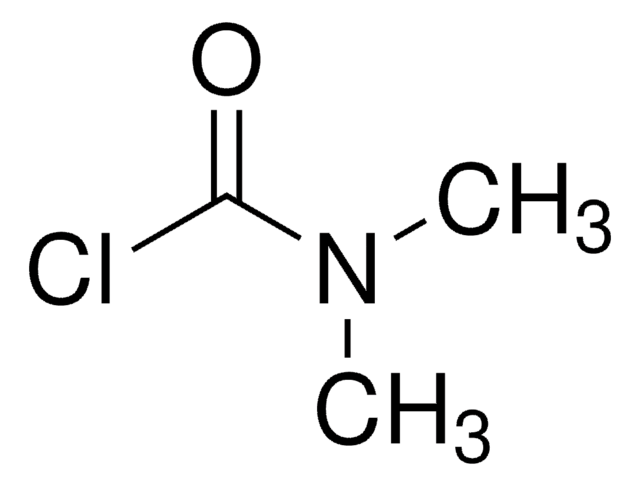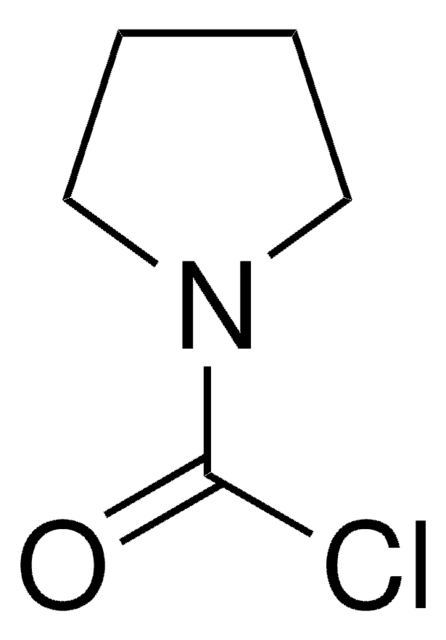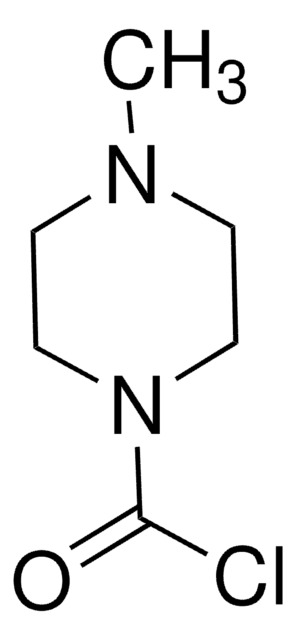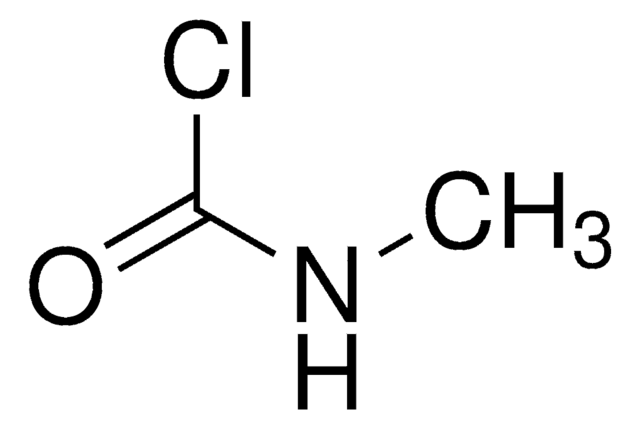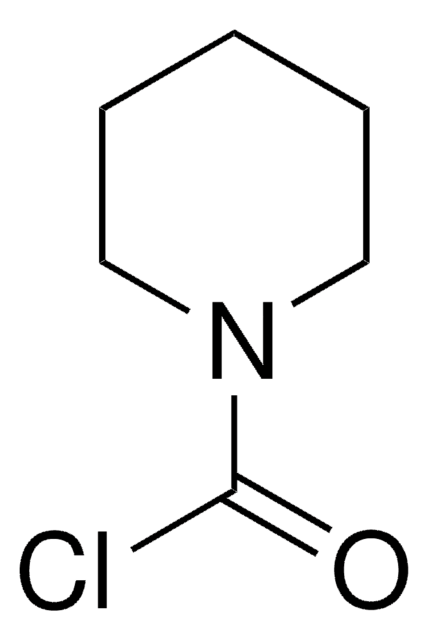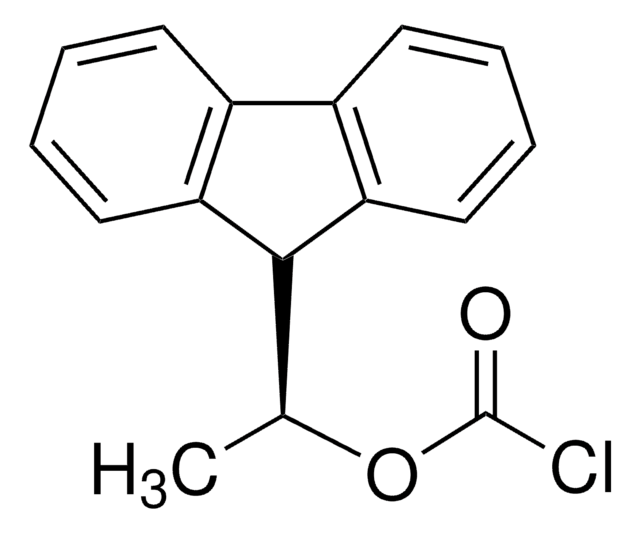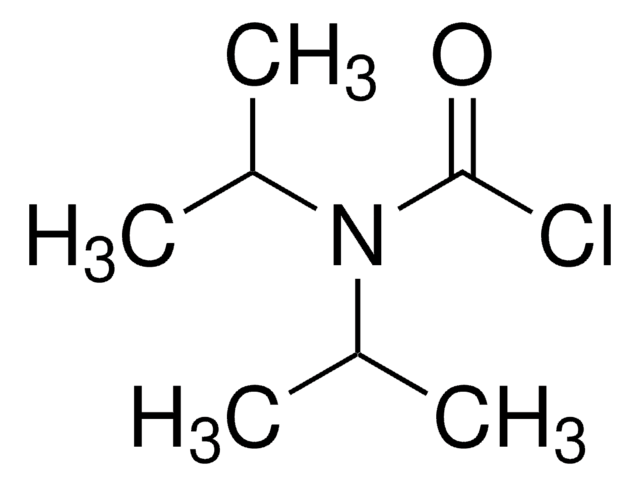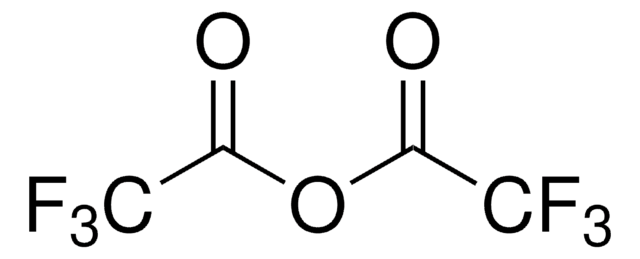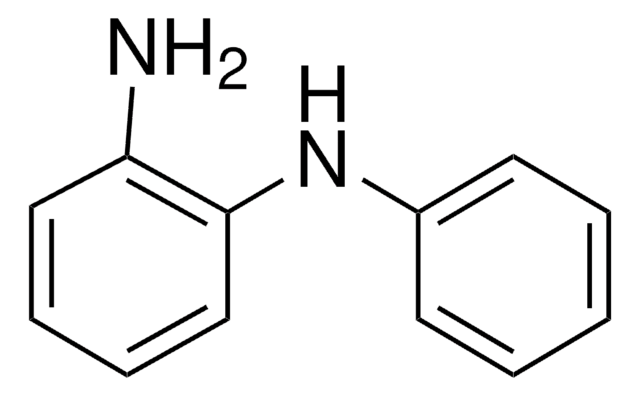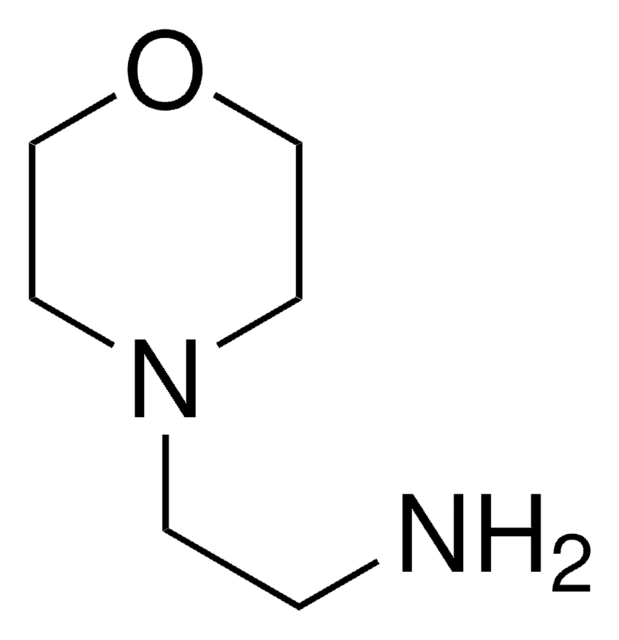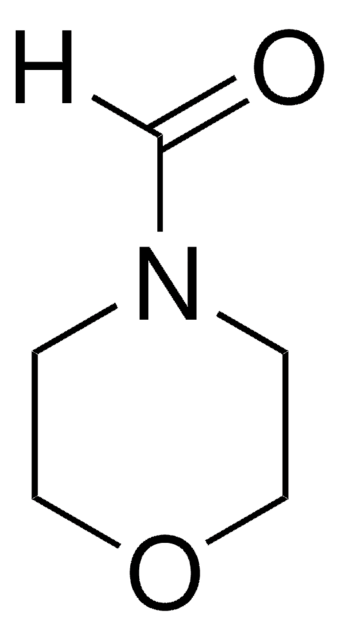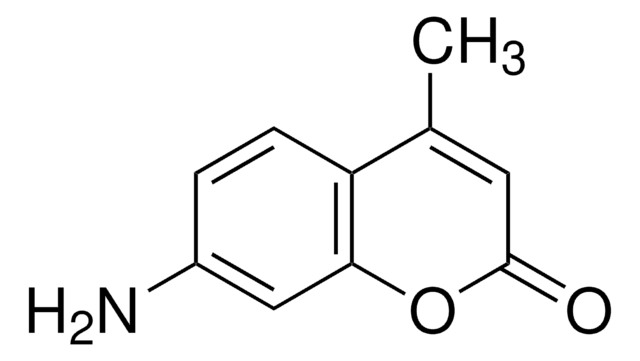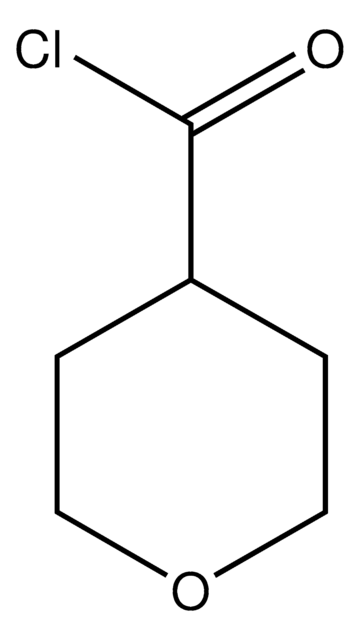All Photos(2)
About This Item
Empirical Formula (Hill Notation):
C5H8ClNO2
CAS Number:
Molecular Weight:
149.58
Beilstein/REAXYS Number:
116257
EC Number:
MDL number:
UNSPSC Code:
12352100
PubChem Substance ID:
NACRES:
NA.22
Recommended Products
Quality Level
assay
98%
form
liquid
refractive index
n20/D 1.498 (lit.)
bp
137-138 °C/33 mmHg (lit.)
density
1.282 g/mL at 25 °C (lit.)
functional group
chloro
ether
SMILES string
ClC(=O)N1CCOCC1
InChI
1S/C5H8ClNO2/c6-5(8)7-1-3-9-4-2-7/h1-4H2
InChI key
XMWFMEYDRNJSOO-UHFFFAOYSA-N
Looking for similar products? Visit Product Comparison Guide
General description
4-Morpholinecarbonyl chloride is a photographic intermediate. Rates of solvolysis of 4-morpholinecarbonyl chloride with N-alkyl group in aqueous binary solvents of acetone, ethanol, methanol, methanol-d, 2,2,2-trifluoroethanol, pure water and D2O has been determined. Preparation of 4-morpholinecarbonyl chloride has been reported.
Application
4-Morpholinecarbonyl chloride may be used in the preparation of a versatile fluorogenic label for biomolecular imaging. It may be used in the synthesis of:
- morpholine-4-carboxylic acid [4-(2,4-dimethylphenyl)thiazol-2-yl]amide
- morpholine-4-carboxylic acid [4-(2,4,6-trimethylphenyl)thiazol-2-yl]amide
- 2-isopropyl-6-methylpyrimidin-4-yl morpholine-4-carboxylate
signalword
Warning
hcodes
Hazard Classifications
Carc. 2 - Eye Irrit. 2 - Skin Irrit. 2
supp_hazards
Storage Class
10 - Combustible liquids
wgk_germany
WGK 3
flash_point_f
235.4 °F - closed cup
flash_point_c
113 °C - closed cup
ppe
Eyeshields, Faceshields, Gloves, type ABEK (EN14387) respirator filter
Choose from one of the most recent versions:
Already Own This Product?
Find documentation for the products that you have recently purchased in the Document Library.
Customers Also Viewed
Xiao-Long Qiu et al.
Journal of medicinal chemistry, 52(6), 1757-1767 (2009-02-27)
High expression in cancer 1 (Hec1) is an oncogene overly expressed in many human cancers. Small molecule inhibitor of Nek2/Hec1 (INH) targeting the Hec1 and its regulator, Nek2, in the mitotic pathway, was identified to inactivate Hec1/Nek2 function mediated by
Synthesis and antifungal activities of some novel pyrimidine derivatives.
Sun L, et al.
Molecules (Basel), 16(7), 5618-5628 (2011)
Correlation of the rates of solvolysis of 4-morpholinecarbonyl chloride using the extended Grunwald-Winstein equation.
Kim R, et al.
Bull. Korean Chem. Soc., 31(7), 1963-1963 (2010)
Luke D Lavis et al.
ACS chemical biology, 1(4), 252-260 (2006-12-14)
Traditional small-molecule fluorophores are always fluorescent. This attribute can obscure valuable information in biological experiments. Here, we report on a versatile "latent" fluorophore that overcomes this limitation. At the core of the latent fluorophore is a derivative of rhodamine in
Our team of scientists has experience in all areas of research including Life Science, Material Science, Chemical Synthesis, Chromatography, Analytical and many others.
Contact Technical Service